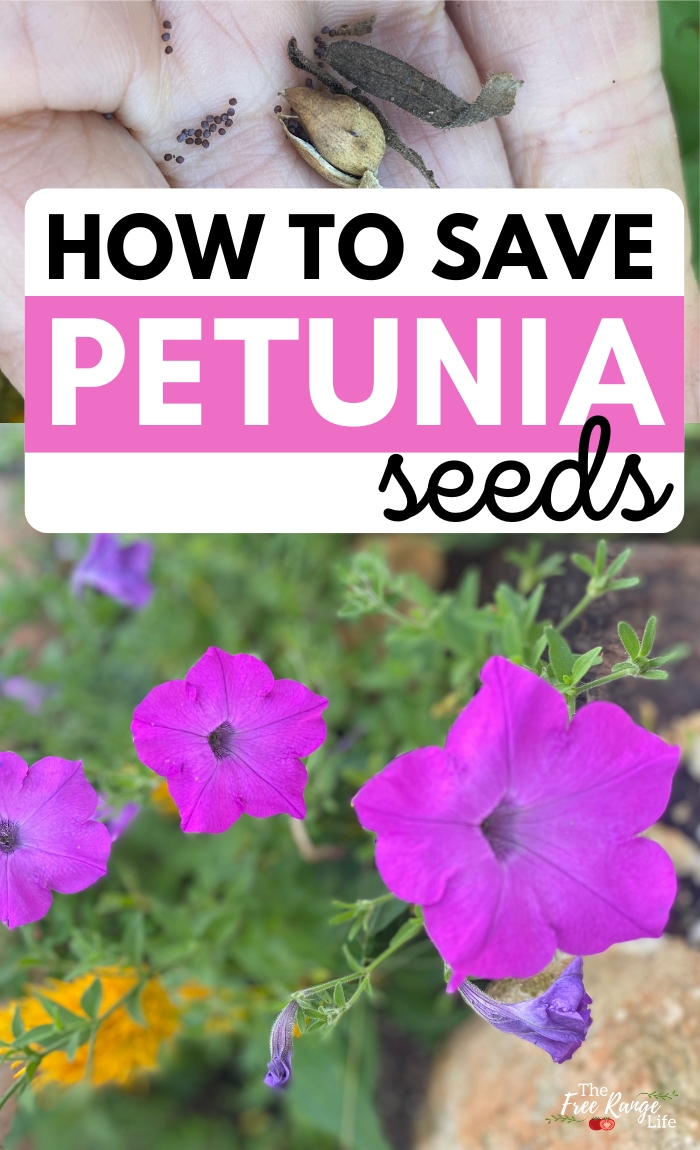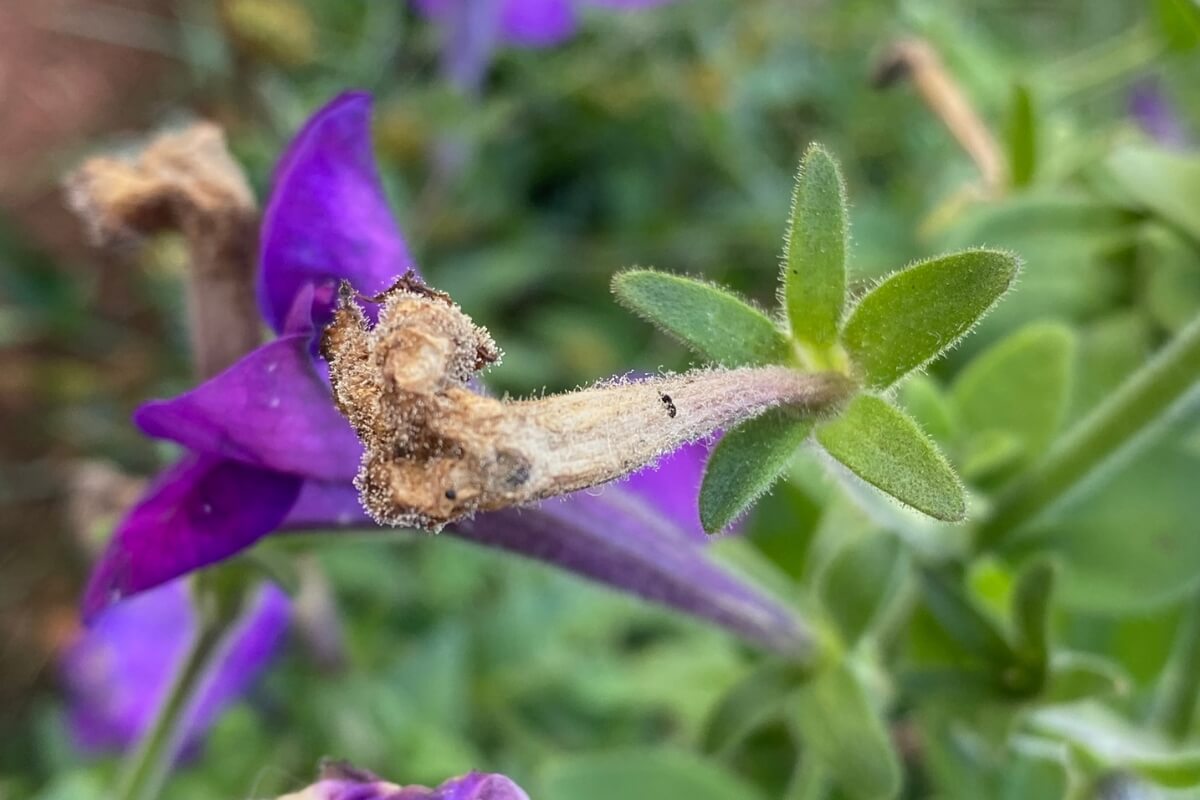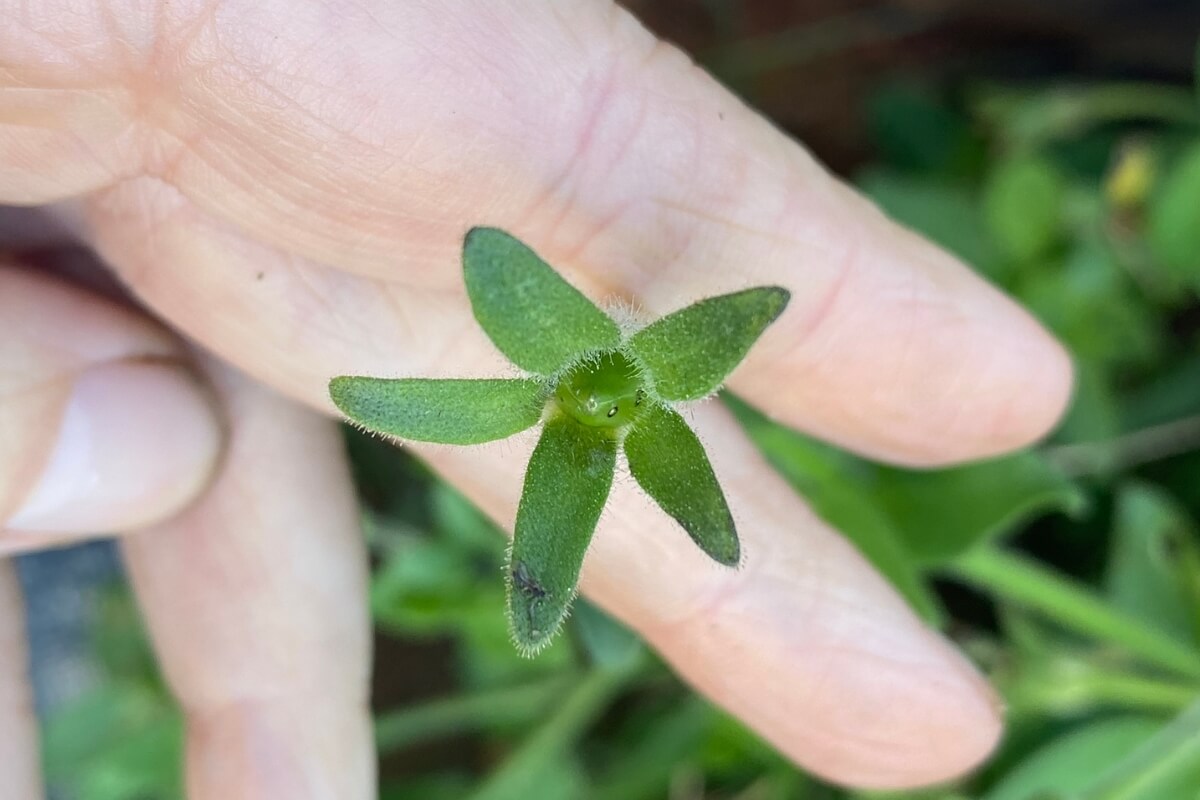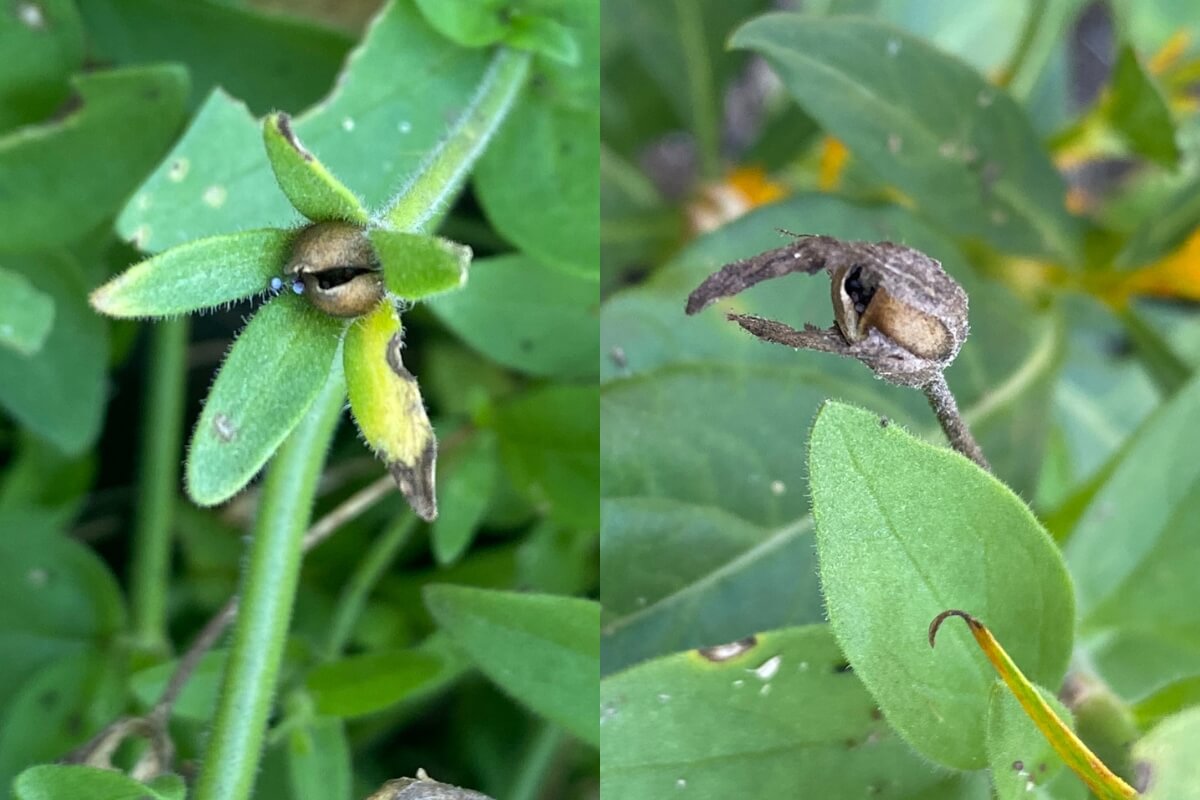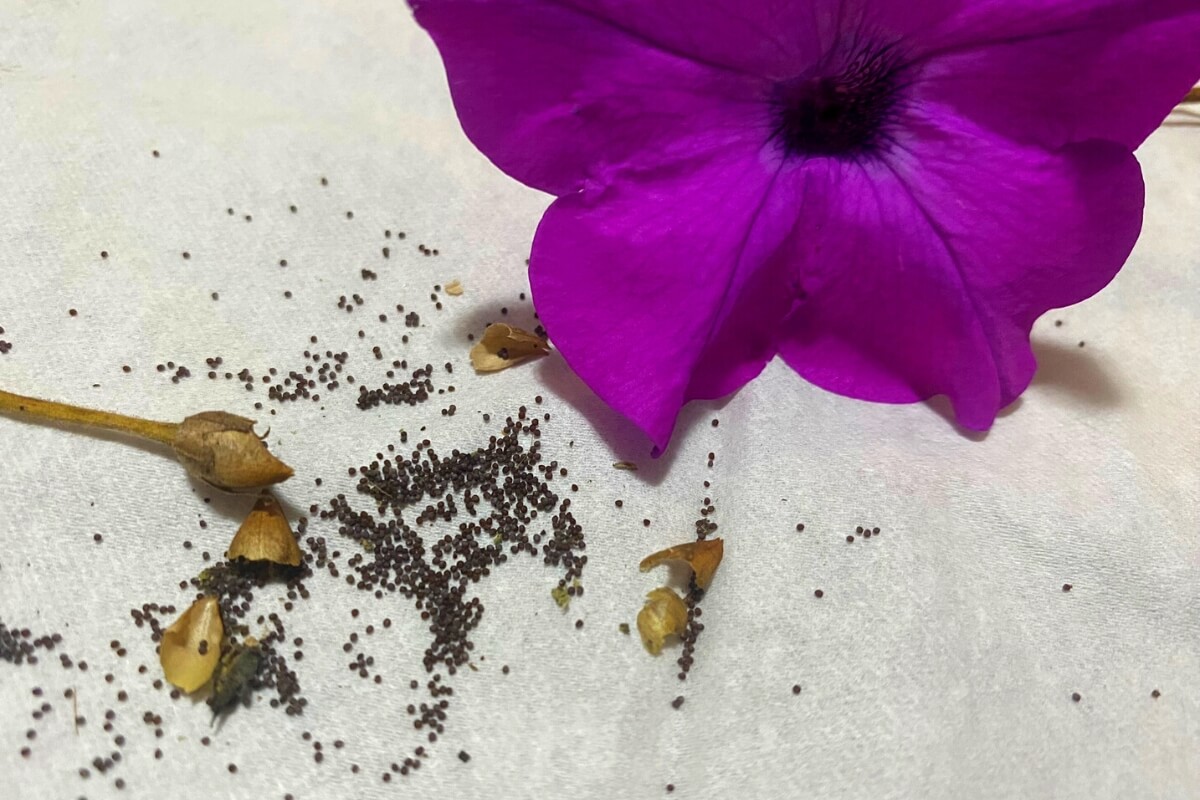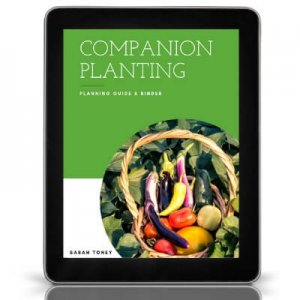Do you love planting petunias in your flower garden every year? Learn how to collect petunia seeds so you can plant more every year!
Petunias are a popular annual flower that can be found in home flower gardens and landscapes all summer long, and are common flowers to buy from local garden centers. They are perfect for filling a window box or a hanging planter.
This site contains affiliate links. If you make a purchase using one of these links, I may earn a commission. Please see my disclosure page for more information about cookies collected and our privacy policy.
They help bring in beneficial insects and pollinators and are great for bringing more butterflies and hummingbirds to your yard.
Petunias come in all sorts of colors and varieties- from solid color to candy cane and from tiny to giant in size.
These beautiful flowers can grown anywhere from 6-18 inches tall and spread up to 4 feet long!
Though petunias are an annual flower, they go to seed very readily. While you can allow the seeds to drop and see if new ones will sprout the following spring, you can also collect petunia seeds to save and plant the following year.
Learning how to collect petunia seeds will save you money- you’ll never have to buy flower seeds (or plants) again! And you’ll get to plant so many more in your flower garden.
How to Collect Petunia Seeds for Later
Collecting and saving petunia seeds is very easy and in just a couple of minutes you can have tons of seeds. Which will turn in to tons of flowers you can plant next year for free!
Here’s how to do it:
With many of the flowers I grow, such as calendula or cosmos, and zinnias, I pick the blossoms as they grow or deadhead them after the blooms have faded. I don’t always do this with petunias, but if you do, when you are ready to collect seeds you will need to leave the flowers alone and allow them to dry and form the seed head.
The petunia seed pod will form where the flower head was after the blossom has dropped.
At first it will look like this:
The above is an a petunia blossom just after it has died and wilted. At this point the seed pod is just forming and is still quite green.
You can decide to leave the dead blossom on the plant, or gently pull off just the petal.
Under the dead blossom, you should see something like this:
This is the green seed pod. It will get larger over time as the seeds mature.
You want to wait until the petunia seed pod is completely brown and dry before collecting petunia seeds.
It will look like this when the petunia seeds are ready to be collected:
As you can see the pod is brown and dry and beginning to crack open.
You can even see some of the seeds inside the pod.
When the seeds are fully mature the pod will crack easily and allow the seeds to spill out.
You can collect seed heads by snipping them off the plant with scissors or simply pulling them off the plant with your fingers. You can also burst the pod directly into your hand or container.
Pull all of the seeds out and place them in a container.
Before storing it’s very important that the seeds are completely dry.
If you aren’t certain the seeds are 100% dry you can keep them in an open container or lay them on a tray covered with paper towels for a few days to allow them to dry before storing them.
How to Store Saved Petunia Seeds
Make sure the petunia seeds are completely dry before storing, otherwise you might end up with mold in your jar which can ruin your entire seed collection!
It’s best to keep your dried petunia seeds in an airtight container with an airtight lid. This prevents the seeds from collecting moisture from the air around them.
Mason jars are perfect for storing seeds!
Another option is to seal the dry seeds in a plastic Ziploc bag or a sealed envelope.
No matter which container you choose, be sure to label your container with the name of the seed and the year collected.
Seeds are best stored at a temperature of 35-40 degrees, so storing them in the refrigerator or freezer can work well to keep them dry and mold free, thus expanding their shelf life. You can also just store them wherever you store the rest of your garden seed collection!
If you don’t want to collect them, you can always leave the seeds on your petunias and see if they will self-seed the following spring. Or harvest them and immediately sprinkle the seeds around your garden area where you want them to grow next year. I usually do a little bit of both!
You may also like:
How to Collect Snapdragon Seeds

